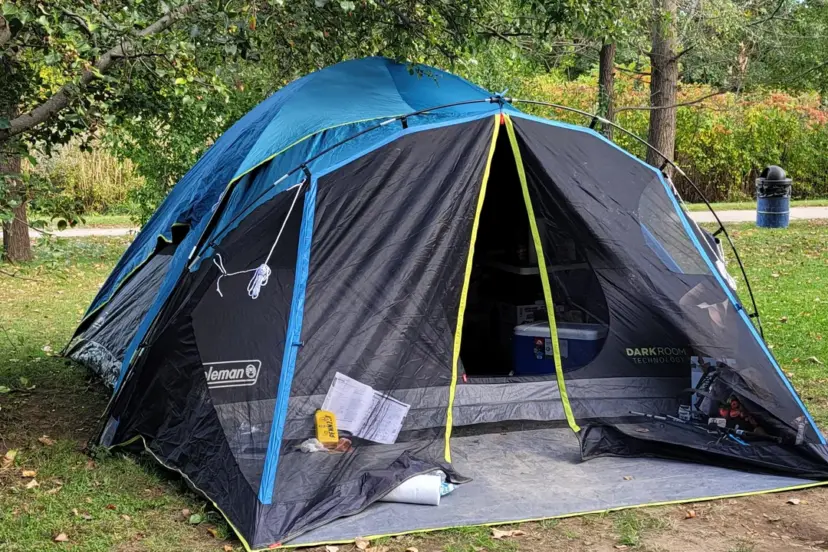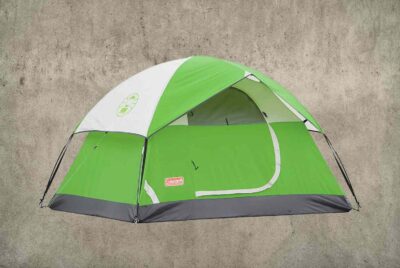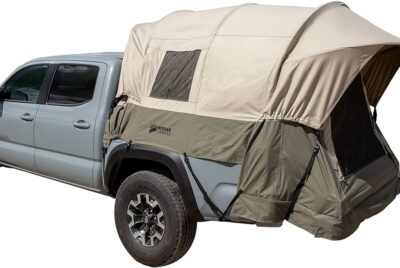Camping Tent Flooring: A Guide
Introduction:
Camping tent flooring is a crucial aspect when you are embarking on a camping adventure which can be exhilarating, but the success of your trip often hinges on the details. In this guide, we’ll explore everything you need to know about camping tent flooring, providing valuable insights for beginners and seasoned campers alike.
Understanding Camping Tent Flooring
Types of Camping Tent Flooring:
Choosing the right camping tent flooring is a crucial decision that can significantly impact your outdoor experience. The variety of options available, from ground tarps to specialized tent footprints, may seem overwhelming for beginners, but understanding the basics is key. Quality flooring not only protects you from the elements but also enhances insulation and comfort, ensuring a good night’s sleep. Factors such as tent size, weight, and portability should be considered when making your selection. Investing in reputable brands like Big Agnes, REI Co-op, and Coleman ensures durability and reliability during your camping adventures. Whether you’re facing unexpected rain or uneven terrain, a well-chosen tent flooring becomes your reliable companion, making your outdoor stay both enjoyable and worry-free.
Material Matters:
The material of camping tent flooring plays a crucial role in ensuring durability and protection during outdoor excursions. Commonly crafted from robust materials like polyethylene, polyester, or nylon, these fabrics offer waterproof properties to shield your tent from unexpected rain or damp ground. Their resistance to abrasions ensures longevity, even when faced with rough terrains. Beyond protection, these materials contribute to insulation and comfort, creating a cozy environment for a restful night’s sleep. Choosing the right material tailored to your camping needs is essential for a positive outdoor experience, where the flooring becomes a reliable foundation for your shelter in varying weather conditions.
Importance of Quality Camping Tent Flooring
Weather Resistance:
Weather resistance is a critical attribute of camping tent flooring, acting as a shield against the unpredictable elements of the great outdoors. Whether facing sudden rain showers or unexpected storms, a high-quality flooring material with waterproof properties is paramount. The ability to repel moisture prevents water from seeping into your tent, keeping you and your gear dry and comfortable. Additionally, weather-resistant camping tent flooring provides a reliable barrier against ground dampness, ensuring a cozy and protected camping environment. Investing in flooring with exceptional weather resistance is a proactive measure that enhances your camping experience by safeguarding against the whims of nature.
Insulation and Comfort:
Insulation and comfort are integral aspects of camping tent flooring, significantly impacting the overall quality of your outdoor sleep experience. A well-chosen flooring material with adequate thickness acts as a barrier against the cold ground, preventing heat loss and ensuring a cozy night’s sleep. This insulation becomes particularly crucial during chilly nights or in colder climates, where the right flooring can make the difference between a restless night and a restorative rest. Beyond insulation, camping tent flooring contributes to overall comfort by providing a soft and supportive surface, allowing you to wake up refreshed and ready to embrace the adventures of the day.
Choosing the Best Camping Tent Flooring for Your Tent
Tent Size Matters:
Insulation and comfort are integral aspects of camping tent flooring, significantly impacting the overall quality of your outdoor sleep experience. A well-chosen flooring material with adequate thickness acts as a barrier against the cold ground, preventing heat loss and ensuring a cozy night’s sleep. This insulation becomes particularly crucial during chilly nights or in colder climates, where the right flooring can make the difference between a restless night and a restorative rest. Beyond insulation, camping tent flooring contributes to overall comfort by providing a soft and supportive surface, allowing you to wake up refreshed and ready to embrace the adventures of the day.
Weight and Portability:
Weight and portability are key considerations when selecting camping tent flooring, especially for backpackers and hikers. Opting for lightweight yet durable materials ensures that your gear remains manageable during your outdoor adventures. Whether you’re trekking through rugged terrains or embarking on a multi-day hike, the right flooring contributes to a lighter load without compromising on protection. Portable flooring solutions, such as foldable tarps or compact footprints, fit seamlessly into your camping gear, making them convenient companions for those who prioritize mobility. Striking the right balance between weight and portability guarantees that your camping tent flooring is both practical and efficient for your on-the-go outdoor lifestyle.
Top Brands in Camping Tent Flooring
Big Agnes Footprints:
Known for their precision fit, Big Agnes footprints (Amazon) are designed to match their tents perfectly. These durable footprints provide an extra layer of protection against rough terrain.
REI Co-op Tarps:
REI (REI Shop co-op) offers a range of high-quality tarps suitable for camping. Their tarps are waterproof, easy to clean, and come in various sizes to accommodate different tents.
Coleman Tent Footprints:
Coleman (Amazon) is a trusted name in camping gear, and their tent footprints are no exception. Affordable and reliable, these footprints add an extra layer of protection to your tent floor.
Conclusion
Investing time in choosing the right camping tent flooring is a small step that makes a significant impact on your overall camping experience. Whether you’re a beginner or a seasoned camper, quality flooring ensures a comfortable and enjoyable outdoor adventure.
FAQs (Frequently Asked Questions
Do I really need a tent footprint?
While it’s not mandatory, a tent footprint provides an additional layer of protection, extending the lifespan of your tent and keeping you dry in damp conditions.
Can I use any ground tarp with my tent?
It’s recommended to use a ground tarp specifically designed for camping to ensure proper fit and durability. Generic tarps may not offer the same level of protection.
How do I clean and maintain my tent flooring?
Regularly clean your tent flooring with a gentle solution of water and mild soap. Avoid harsh chemicals, as they may damage the waterproof coating.
What size of tent footprint should I choose?
Select a footprint that matches the dimensions of your tent or is slightly smaller. A well-fitted footprint provides optimal protection without extending beyond the tent edges.
Can I use my tent without any flooring?
While it’s possible, using a tent without flooring exposes you to moisture, cold ground, and potential damage to the tent bottom. It’s advisable to invest in proper flooring for a better camping experience.




